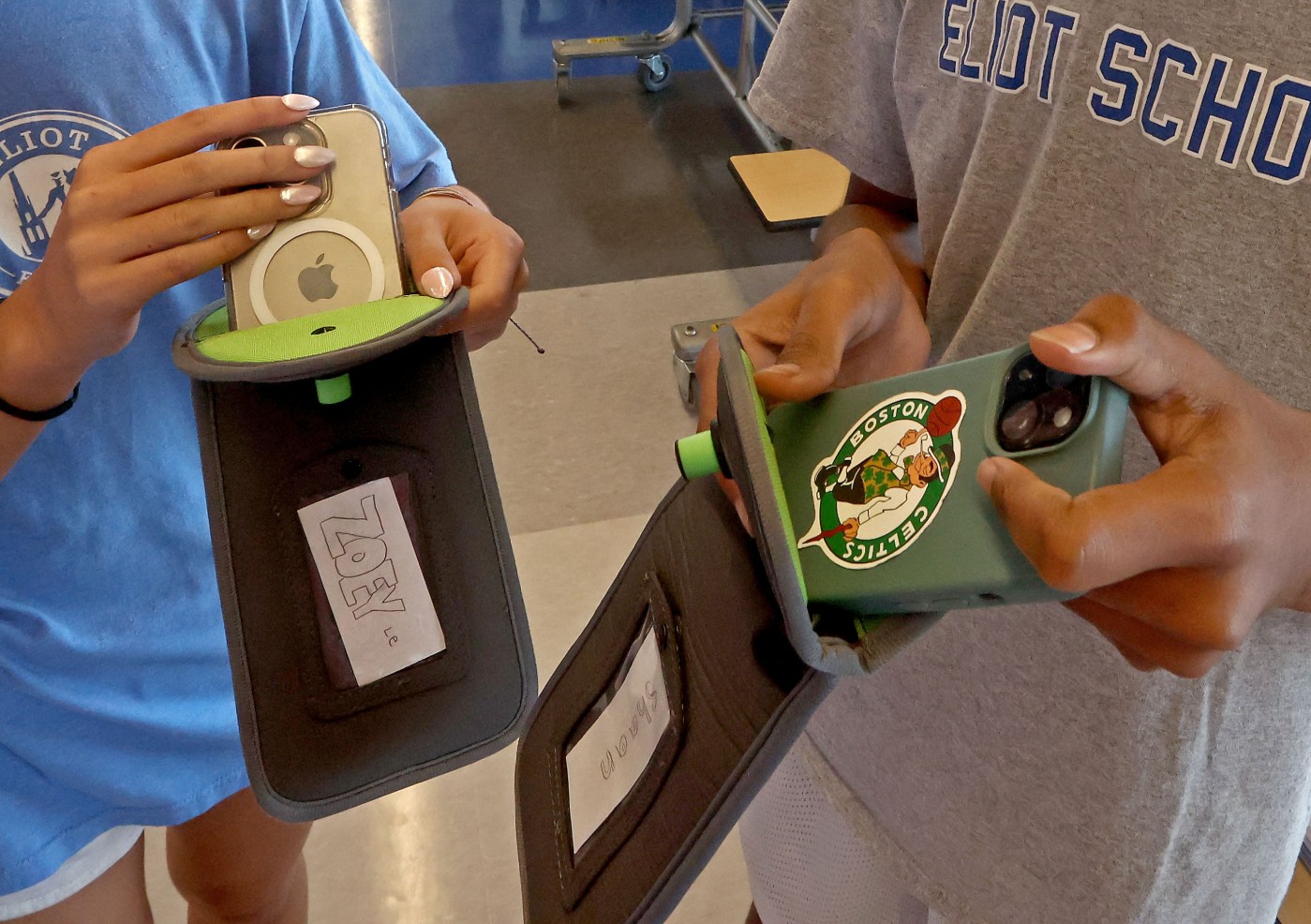
Massachusetts Attorney General recommends cell phone, social media policies for schools
As the push to regulate technology in schools grows nationwide, Massachusetts Attorney General Andrea Campbell has released a toolkit for school districts to inform cell phone and social media policies across the Commonwealth.
“Schools across Massachusetts are grappling with the pervasive effects of cell phone and social media use among students,” Campbell said. “This toolkit will serve as a vital resource to help schools create a distraction free environment where students can also thrive socially.”
The AG introduced the “Cell Phones and Social Media in Schools Toolkit,” developed in collaboration with the Shah Family Foundation, in the mid-Winter meeting of the Massachusetts Association of School Superintendents last week.
She’s scheduled to present the toolkit to the Board of Elementary and Secondary Education on Tuesday.
The toolkit does not include any mandates for districts, but models policies including a “bell-to-bell” ban on personal electronic devices during the school day. The AG’s initiative also includes recommendations for community norms for technology use in schools and curriculum guidelines for teaching digital media literacy.
The release of Campbell’s plan last week coincided with a proposal by New York Gov. Kathy Hochul to ban cell phone usage in schools by next fall. New York would join at least eight states across partisan lines which have legislated statewide cell phone bans or restrictions: California, Florida, Indiana, Louisiana, Minnesota, Ohio, South Carolina and Virginia.
In 2023, Massachusetts state education officials announced a pilot program distributing about $800,000 in federal funding to school districts looking to enact policies to address the use of electronic devices in middle and high schools.
The toolkit is not Campbell’s only recent swing at cell phone use in schools. Days before, the AG’s office, along with state Sen. Julian Cyr, Reps. Alice Hanlon Peisch and Kate Lipper-Garabedian introduced legislation called the STUDY Act, which would ban the use of cell phones and personal electronic devices during school hours statewide. The bill would also propose standards for social media companies for “safe and responsible use.”
The three cell phone policies included in the toolkit are a total “bell-to-bell” ban in which phones are confiscated during the school day, an “off and away” policy in which phones are expected to be stored and not used, and a “limited use” policy in which students may use only during designated times like lunch.
The AG’s office recommends the total bans for all age groups — which the toolkit notes “tend to be most effective” — while “off and away” is recommended for middle and high school and “limited use” is recommended for high school only.
The document includes school districts currently using each policy including Brookline’s implementation of “off and away” practices and Worcester’s “limited use” policy. Thirty-one schools in Boston, including the Eliot school, have enacted or are in the process of implementing “bell-to-bell” policies, using techniques like locking phones in pouches at the start of the day.
Nationwide, 76% of schools say they prohibit the non-academic use of cell phones or smartphones, according to the National Center for Education Statistics.
As state officials began to meet with superintendents and stakeholders on cell phone and social media policies, said Ross Wilson, Shah Family Foundation executive director, it became clear the policies were “inconsistent” across the state.
“What was very clear was each district really was grappling with this issue on their own, and there wasn’t necessarily a resource for them to turn to help create these policies,” said Wilson. “There wasn’t one policy that was one that everybody should adopt, but rather, everybody was in a slightly different place.”
The toolkit develops a “common baseline” for the districts, Wilson said.
Related Articles
BPS announces plan to drop 17 schools by 2030 through closures, mergers
Poll: Massachusetts parents have concerns with students’ college, career readiness after high school
How to get student loan relief after the L.A. wildfires
Some US lawmakers want more Christianity in the classroom. Trump could embolden their plans
Massachusetts school superintendents’ group severs ties with MassCUE in wake of controversial conference
The document notes nearly all teenagers have smartphones, and up to 95% of teenagers ages 13-17 report using social media, “with over one-third reporting that they use it ‘almost constantly,’” citing Pew Research data.
The toolkit, available online through the Attorney General’s website, also includes digital literacy curriculum examples and community norms guidelines, like teaching how to understand the risk of social media and when to seek help from an adult with content online.
“Massachusetts superintendents have reported that implementing phone locking pouches and other bell-to-bell policies have led to marked improvements, including increased student attention, improved peer relationships, and reductions in cyberbullying,” the toolkit document states.
Attorney General Andrea Campbell (Nancy Lane/Boston Herald, File)


